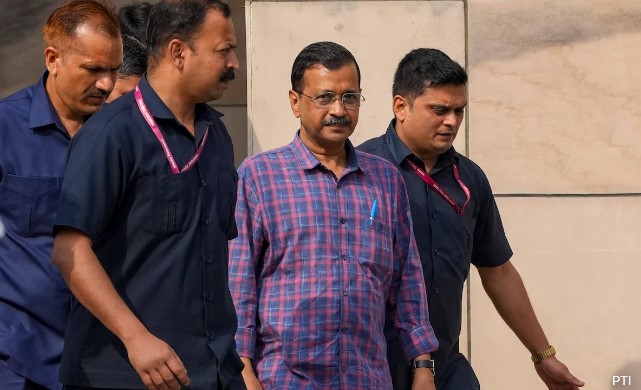The Central Bureau of Investigation (CBI) filed a chargesheet against Delhi Chief Minister Arvind Kejriwal and several others in the Rouse Avenue Court, connected to the controversial excise policy case.
Recently, the Delhi High Court reserved its decision on Kejriwal’s plea challenging his arrest by the CBI. The court also reserved the order regarding his plea for interim bail. During the proceedings, CBI lawyer DP Singh argued that there was no need to re-examine the evidence at the investigation stage, as evidence collection was ongoing.
Singh highlighted that the investigation process is distinct from the conclusions drawn by the investigating officer when filing a final report under Section 173 CrPC. He asserted that sufficient evidence existed to justify Kejriwal’s arrest, which had been presented to him during his examination.
The CBI maintained that it was within their legal right to interrogate and arrest the accused, adhering to proper procedures. They justified Kejriwal’s custodial interrogation due to his evasive responses during the June 25, 2024, questioning, underscoring the importance of this step to uncover the truth.
The CBI noted that Section 41-A CrPC, alongside Section 41-A (3), does not prohibit the arrest of individuals reasonably suspected of committing a cognizable offense punishable by up to seven years in prison. The investigating officer must be satisfied with the necessity of the arrest under the conditions specified in Section 41 (1) (b) (ii) and must document the reasons.
Representing Kejriwal, Senior Advocate Abhishek Manu Singhvi argued that the arrest was unnecessary and pointed out several procedural irregularities. He mentioned that Kejriwal had already been granted bail under stricter conditions and criticized the timing and manner of his arrest by the CBI.
Singhvi highlighted that Kejriwal’s arrest came shortly after the trial court granted him bail under PMLA provisions and argued that there was a lack of due process, including no prior notice or opportunity to contest the arrest. He drew parallels with the recent case of Imran Khan’s arrest and release, emphasizing that such incidents should not occur in India.
Singhvi also pointed out that the trial court allowed the CBI’s application for production warrants even after Kejriwal had been interrogated for nearly three hours on June 25. He argued that Kejriwal, as the National Convenor of the Aam Aadmi Party and the current Chief Minister of Delhi, was being targeted for political reasons and sought regular bail from the court.
Kejriwal’s writ petition, challenging his arrest and the routine remand orders, was previously heard by the Delhi High Court on July 2, with the court issuing a notice and scheduling the matter for further hearing on July 17.

















